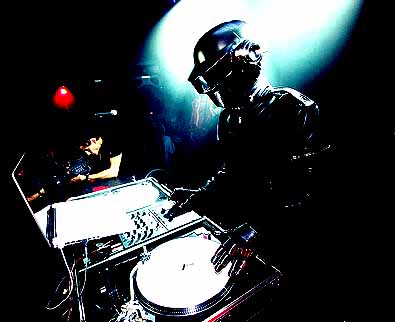
First do yourself a favor and read this article: The Predictioneer
For the lazy, basically this fellow Bruce Bueno, a professor at New York University, has been developing a model to predict such seemingly unforeseeable things as who will win an election, or if a certain bill will make it through congress, etc. While avid political scientists might be able to make similar claims, Bueno has the statistics to back it up: over 90% accuracy at this point, with an even better model in the works.
So how does he do it?
1. Amazingly informed starting information which he gathers by paying attention to what's going on in the world of politics [for example: "Give a shit factor for health care" Obama 98/100, McCain -77/100, ... "Able to do shit about it factor" Obama 60/100, McCain 5/100, Clinton (Bill) 80/100 ... etc.]
2. Game theory running software, which runs all known variables against each other and predicts an outcome.
Really, it's that simple. The difficult part is obtaining the correct input data, because the engine is only so accurate as what you provide it, which is why Bueno, being an expert in the world of politics, is able to achieve such high results.
Now.
Take something really similar to an election, say high school prom. We want to predict who will end up taking who. Even without knowing English. Even without being able to see the kids to analyze how objectively attractive they each are. Even without knowing who's friends with who on facebook, etc. If we could just track relative movement over time for a number of weeks, I bet that would be enough data to run an accurate model. Luckily Japan has given us this.
So now take a similar example: a night at a club. If we could track movement, we could probably come up with a 10% accurate model of who would go home with who. If we could couple this with eye tracking, we could probably bump it up to 50%. If we could add past relationships for the people involved, to see what facial/personality features they prefer in a mate, we could probably tip the scale closer toward 90%. Now switch into first person- if you're in the club and you want to know who you might have a shot with, then you can work with the software by inputting good data just like Bueno [example: Suzy likes Bill 75/100, Suzy finds guys like Bill attractive ?/100 (now you show the system her past boyfriends on facebook and it analyzes their physical appearance for similarity = 99/100) ... etc. Run this on everyone present, and you can figure out who to talk to. Just keep in mind that everyone else is probably doing the same thing.]
Take something less trivial like who's a compatible lifelong mate, and we'll be able to cause all sorts of mischief.
Cyborg Socialization






